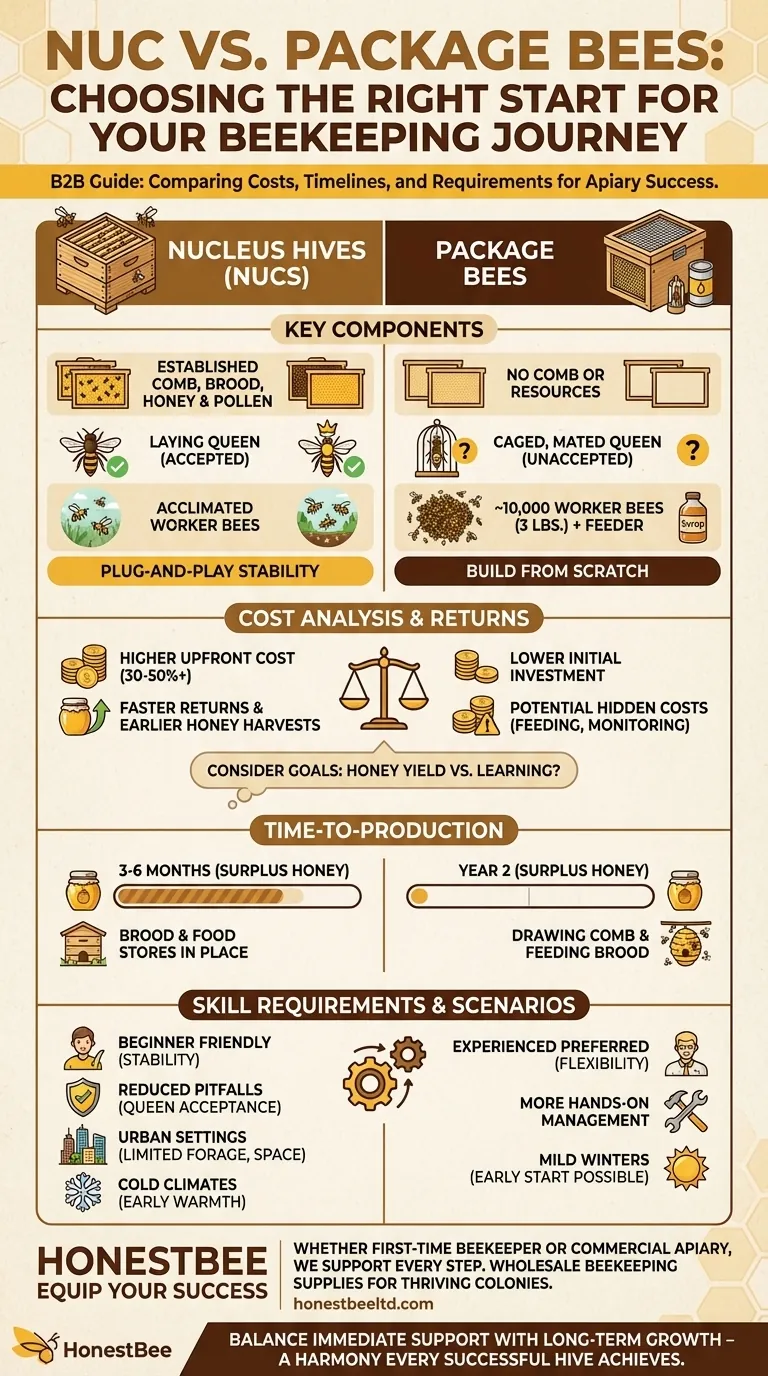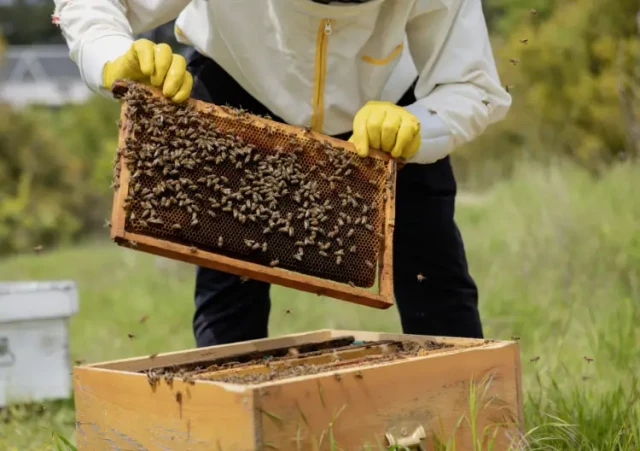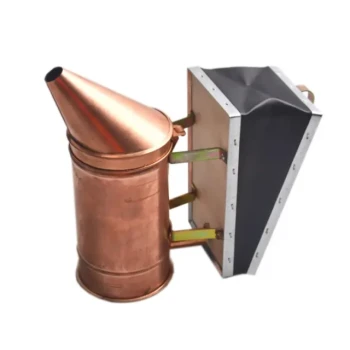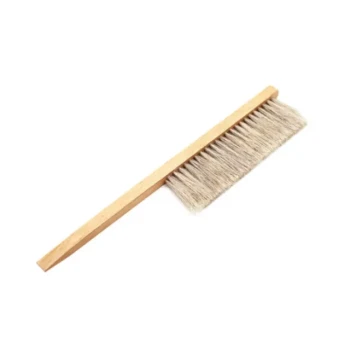Starting a bee colony is an exciting venture, but the choice between nucleus hives (nucs) and packaged bees can make or break your first season. This guide cuts through the confusion by comparing costs, timelines, and skill requirements—helping you align your choice with your beekeeping goals.
Understanding Nucleus Hives and Packages
Key Components of a Nuc Colony
A nucleus hive is a miniaturized, fully functional colony that includes:
- Established comb with brood (developing bees), honey, and pollen stores
- A laying queen already accepted by the worker bees
- Worker bees acclimated to their environment
This "plug-and-play" setup mimics a natural swarm, offering stability from day one. Research shows nucs adapt better to local conditions since they’re typically sourced nearby, reducing stress from transportation.
What’s Missing in a Bee Package?
Packaged bees arrive as a screened box containing:
- ~10,000 worker bees (about 3 lbs.)
- A caged, mated queen (not yet accepted by the colony)
- A temporary sugar syrup feeder
Unlike nucs, packages lack comb or stored resources, forcing bees to build everything from scratch. This delays honey production and requires more hands-on management during colony establishment.
Critical Factors for Beekeepers to Consider
Cost Analysis: Initial Investment vs. Long-Term Returns
- Nucs cost roughly 30–50% more upfront but offer faster returns. Their established comb and queen acceptance mean earlier honey harvests—often within the same season.
- Packages are budget-friendly initially but may require supplemental feeding and closer monitoring, adding hidden costs.
Have you considered how your first-year goals (e.g., honey yield vs. learning) might justify the higher nuc cost?
Time-to-Production: When Will You Harvest Honey?
- Nucs: With brood and food stores already in place, these colonies can produce surplus honey in 3–6 months.
- Packages: Bees spend their first weeks drawing comb and feeding brood, pushing honey harvests to Year 2 in many climates.
Skill Requirements: Which Option Fits Your Experience Level?
- Beginners benefit from nucs’ stability. The pre-accepted queen and comb reduce common pitfalls like queen rejection or starvation.
- Experienced beekeepers may prefer packages for their flexibility in hive setup and queen selection.
Real-World Scenarios and Recommendations
Urban Beekeeping: Space and Resource Considerations
Nucs shine in urban settings where:
- Limited forage makes early colony establishment critical.
- Noise and space constraints favor calmer, settled bees (packages may swarm during installation).
Climate-Driven Choices: Adaptability to Regional Conditions
- Cold climates: Nucs’ established brood helps maintain hive warmth through early spring.
- Mild winters: Packages can catch up if installed early, but late-season installations risk low winter survival.
Ready to Start Your Hive? Let HONESTBEE Equip Your Success
Whether you’re a first-time beekeeper prioritizing ease or a commercial apiary scaling production, HONESTBEE’s wholesale beekeeping supplies ensure you’re prepared. From durable hive components to protective gear, we support every step of your journey—because thriving colonies begin with the right foundation.
Final Thought: Like choosing between seedlings and seeds in gardening, nucs and packages each nurture different beekeeping experiences. Your decision ultimately hinges on balancing immediate support with long-term growth—a harmony every successful hive achieves.
Visual Guide

Related Products
- 5 Frame Wooden Nuc Box for Beekeeping
- HONESTBEE Professional Long Handled Hive Tool with Precision Cutting Blade
- HONESTBEE Advanced Ergonomic Stainless Steel Hive Tool for Beekeeping
- Boardman Entrance Bee Feeder Durable Galvanized Steel and Wood Construction for Beekeeping
- Honey Flow Garden Bee Hive Flow Hive Best Beehive for Beginners
Related Articles
- The Cooperative Engine: How Double Nucs Engineer Winter Survival
- How Medium Boxes Elevate Beekeeping Efficiency: Ergonomics, Hive Health & Cost Savings
- The Architect's Dilemma: How a Nuc Box Solves a Honeybee Swarm's Housing Crisis
- Designing for Instinct: Why the Nuc Box is the Perfect Swarm Trap
- How Local Adaptation and Queen Integration Define Beekeeping Success




















